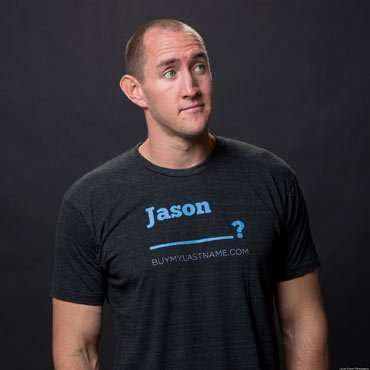
Ryan Frankel is the CEO and Co-Founder of VerbalizeIt, the company that delivers instant access to a global community of translators. Ryan received his MBA from The Wharton School of the University of Pennsylvania in 2012 and a Bachelors of Arts degree from Haverford College in 2006. Ryan is a 2012 TechStars alumnus, former private equity investor for Goldman Sachs and an endurance athletics enthusiast. Follow him @rvfrankel.
Who is your hero?
My dad, hands down.
What’s the single best piece of business advice that helped shape who you are as an entrepreneur today, and why?
Surround yourself with people who are smarter than you. If you find yourself at the top of the intelligence chain at your company, you’ve done something wrong. In creating a team of intelligent and driven individuals, encourage healthy debate. Disagreement is a good thing, and many times, it’s the best of things in plowing the right path forward. Encourage people to air their opinions and take a stance, even if it’s against the broader consensus.
What’s the biggest mistake you ever made in your business, and what did you learn from it that others can learn from too?
The biggest mistake has been spreading myself and our team too thin by chasing after too many different opportunities. One of the best pieces of advice I have received is that the worst word in any entrepreneur’s vocabulary is “and.” As in, “We’re focused on X, and Y, and Z ….” Be laser focused and avoid becoming a mile wide and only an inch deep.
What do you do during the first hour of your business day and why?
I scroll through all of my emails and pick the highest value emails to respond to first. It’s my own 80:20 rule and it helps me focus on the most important outcomes. I also don’t neglect or push back emails to family and friends. When I first launched my business, family and friends naturally took a back seat and I have since re-prioritized my time to make time for those who support me beyond by business.
What’s your best financial/cash-flow related tip for entrepreneurs just getting started?
There’s a fine line between (a) being so scrappy that you miss out on the right opportunities or are not able to hire the best talent and (b) being ineffective or inconsiderate with cash management. As a naturally scrappy person, I have found myself in situations where being pennywise and pound-foolish has detracted more value than it has saved me capital. I make a conscious effort to remain mindful of our cash position but cognizant of how my naturally scrappy personality can be an impediment to meeting business objectives.
Quick: What’s ONE thing you recommend ALL aspiring or current entrepreneurs do right now to take their biz to the next level?
Find someone who will absolutely rip your vision apart and engage them in a constructive debate. Even if 95 percent of their feedback is off base, you’re bound to find some real pearls of wisdom in there. Accelerate success and failure by pushing yourself outside of your preconceived notions of the right approach.
What’s your definition of success? How will you know when you’ve finally “succeeded” in your business?
Success for me is encapsulated in both personal and professional achievements. Finding personal satisfaction and enjoyment in my work and ensuring that I’m enjoying the journey and not just focused on the destination is important to me. I know I have a penchant for being too focused on the end result. Professionally, setting and achieving specific goals for revenue, market share and brand awareness is how I evaluate when I’ve finally “succeeded.” I constantly revisit these goals and our relative progress.
The Young Entrepreneur Council (YEC) is an invite-only organization comprised of the world’s most promising young entrepreneurs. In partnership with Citi, the YEC recently launched #StartupLab, a free virtual mentorship program that helps millions of entrepreneurs start and grow businesses via live video chats, an expert content library and email lessons.



















